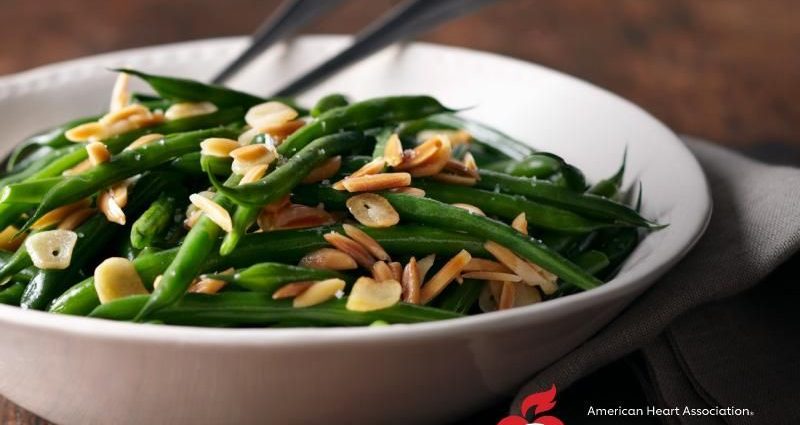TUESDAY, Nov. 22, 2022 (American Heart Association News) — Whether served in a casserole, almondine or roasted with garlic, green beans are sure to make an appearance on many a table this holiday season.
And unlike many of the tempting treats that make up holiday meals, the green bean is one item that’s not usually served with a side of guilt. In fact, it may be the Mighty Mouse of the holiday meal – here to save the day from a beckoning bounty of otherwise fat-laden, calorie-rich foods.
“If not prepared with higher-calorie ingredients, you can eat a large volume of them and feel fuller without overconsuming,” said Maya Vadiveloo, an associate professor in the department of nutrition and food services at the University of Rhode Island in Kingston.
There’s little the mighty green bean can’t do.
Not only are they relatively inexpensive, green beans are rich in vitamin C and beta-carotene, an antioxidant that gives fruits and vegetables their color. The vegetable helps fight inflammation and is a good source of folate and potassium, which helps regulate blood pressure. Green beans also are a good source of protein and fiber, which helps lower cholesterol, Vadiveloo said.
“Fiber is underconsumed by U.S. adults and children, and it’s good for gut health,” she said. “(Fiber) is great for reducing colon cancer risk.”
But whether the green bean delivers its health benefits without also doing harm depends on how the vegetable is prepared, Vadiveloo said.
Boiling the beans removes a lot of nutrients – and a lot of taste, she said.
Vadiveloo recommends cooking them in heart-healthy oils, such as olive oil, or any non-tropical vegetable oil, rather than fatback. If making a casserole, heavy creams or creamy soups can be replaced with Greek yogurt or low-fat milk. For those who want a little cheese on top, she suggests sprinkling cheese instead of pouring it on.
And to maintain the blood pressure-lowering benefits, “don’t put too much salt on them,” she said. “Use other seasoning. I like eating them Szechuan style with cayenne pepper. Or dipping raw green beans in hummus.”
The type of green bean also matters, Vadiveloo said. Fresh or flash frozen is best.
“That said, if what’s available to you is canned green beans and you are picking between that and a non-vegetable,” she said, “I would encourage people to select the canned variety.”
But try to grab the low-sodium option.
What’s most important about maintaining good health at holiday meals, Vadiveloo said, is balance.
“If there are things people really, really like, if it’s a holiday favorite or something your aunt brought to the table and you really crave it, go ahead and have some,” she said. “But balance it out with healthier sides and only take a little.”
American Heart Association News covers heart and brain health. Not all views expressed in this story reflect the official position of the American Heart Association. Copyright is owned or held by the American Heart Association, Inc., and all rights are reserved. If you have questions or comments about this story, please email editor@heart.org.
By Laura Williamson, American Heart Association News
Copyright © 2026 HealthDay. All rights reserved.

